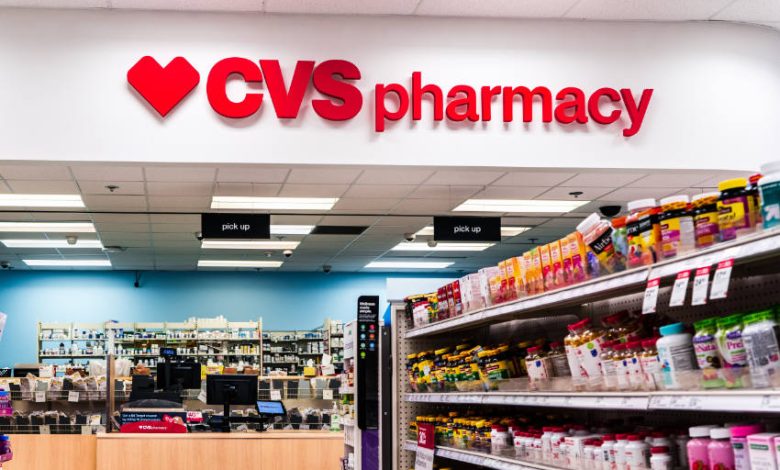What Does The Acronym CVS Stand For?

In the world of retail pharmacy and healthcare, the name “CVS” is synonymous with convenience, accessibility, and quality. Yet, have you ever wondered what the acronym “CVS” actually stands for? The answer lies in the history and evolution of this retail pharmacy giant.
Birth of Consumer Value Stores
In 1963, two brothers, Sidney and Stanley Goldstein, partnered with their friend Ralph Hoagland to create a chain of retail stores aimed at providing consumers with value and convenience. They named their venture “Consumer Value Stores,” which, as its name implies, was dedicated to delivering value to its customers. The first CVS store opened its doors in Lowell, Massachusetts, with the mission of offering health and beauty products at affordable prices.
A Rapidly Growing Retail Presence
From its modest beginnings, CVS quickly expanded its retail footprint. The company’s commitment to providing consumers with value resonated with customers, and more stores began to dot the New England landscape. CVS’s growth was not solely due to its competitive prices; it was also a result of its innovative approach to retail pharmacy.
The Transition to CVS Pharmacy
In 1996, Consumer Value Stores officially transitioned to its now-familiar acronym, CVS Pharmacy. This change represented more than just a name modification; it marked the company’s commitment to becoming a comprehensive healthcare destination. CVS Pharmacy expanded its services to include not only prescription medications and over-the-counter products but also a range of healthcare services and wellness initiatives.
A Health Hub for Communities
Over the years, CVS Pharmacy has evolved into much more than a retail pharmacy. Today, it operates as a healthcare hub within communities, offering a wide array of services and products, including:
1. Prescription Medications: CVS Pharmacy continues to be a trusted source for filling prescriptions, offering a seamless and convenient experience for customers.
2. Over-the-Counter Products: Shelves stocked with a diverse selection of health and wellness products, from vitamins and supplements to personal care items.
3. Health Clinics: Many CVS locations house MinuteClinics, walk-in medical clinics staffed by nurse practitioners and physician assistants. These clinics provide a range of services, including vaccinations, physical exams, and treatment for common illnesses.
4. Health Screenings: CVS offers various health screenings to help customers monitor their health, including blood pressure, cholesterol, and diabetes screenings.
5. Pharmacist Expertise: CVS pharmacists are trained healthcare professionals who can provide medication counseling, answer health-related questions, and offer guidance on managing chronic conditions.
6. Digital Health: The CVS Pharmacy app and website provide tools for managing prescriptions, scheduling appointments, and accessing health resources.
7. Community Engagement: CVS is committed to community health through initiatives like smoking cessation programs, supporting charitable organizations, and addressing public health challenges.
Beyond Retail: A Healthcare Transformation
Today, CVS has evolved into CVS Health, a diversified healthcare company that encompasses retail pharmacy, health clinics, pharmacy benefits management, and more. The transition from “Consumer Value Stores” to “CVS Pharmacy” reflects the company’s profound commitment to providing accessible healthcare services and products to individuals and communities across the United States.
The historical highlights of CVS as captured by the company are presented below:
1963: The first Consumer Value Store selling health and beauty products was founded in Lowell, Massachusetts. A year later, the name was changed to CVS.
1967: Pharmacies within CVS stores are introduced in Cranston, Rhode Island.
1969: CVS is sold to Melville Corporation.
1972: CVS nearly doubled in size with the acquisition of 84 Clinton Drug and Discount stores.
1981: Ground is broken for the CVS Store Support Center in Woonsocket, Rhode Island.
1988: CVS celebrates 25 years, finishing the year with 750 stores and sales of nearly $1.6 billion.
1990-2004: CVS acquires multiple companies including Peoples Drugs, Revco and Eckerd drug stores.
2005: A beauty advisor program is piloted at CVS stores, and beauty department managers join the staff.
2006: CVS acquires MinuteClinic®, the leading provider of in-store health clinics, as well as thousands of Sav-On and Osco drugstores from Albertson.
2007: CVS acquires Caremark, giving birth to the nation’s leading pharmacy-benefits manager.
2014-2015: CVS acquires Coram, Omnicare, Navarro Discount Pharmacy, and all of Target’s 1,600 pharmacies and clinics.
2014-2016: CVS removes tobacco products from store shelves and launches a five-year, $50 million initiative, Be The First, to help deliver the first tobacco-free generation.
2017: CVS and Aetna announced a proposed merger — the biggest healthcare merger in US history.
2018: Aetna is acquired by CVS Health — and it begins a transformation of the consumer health experience.
2020: A commitment is made to invest nearly $600 million over five years to advance employee, community, and public policy initiatives that address inequality faced by Black and other disenfranchised communities.
2020-2021: CVS Health commits the full strength of the enterprise to address urgent healthcare needs stemming from the COVID-19 pandemic.
2020-2021: The company becomes the largest private provider of COVID-19 testing and, in partnership with the Centers for Disease Control and Prevention (CDC), is one of the first to offer on-site COVID-19 vaccinations at nursing homes and assisted living facilities.
2021: Karen Lynch succeeds Larry Merlo as President and Chief Executive Officer of CVS Health.
2023: CVS Health completes acquisitions of Signify Health, a leading technology and services company focused on provider enablement and bringing clinicians into the home, and Oak Street Health, a leading multi-payor, value-based primary care company helping older adults stay healthy.
As CVS Health continues to restructure, innovate, and expand its role in the healthcare landscape, one thing remains constant: its dedication to enhancing the health and well-being of its customers and the communities it serves. The evolution from Consumer Value Stores to CVS Pharmacy and CVS Health showcases the company’s enduring mission to be more than just a retail store—it aims to be a trusted partner in the health journey of millions of Americans.





